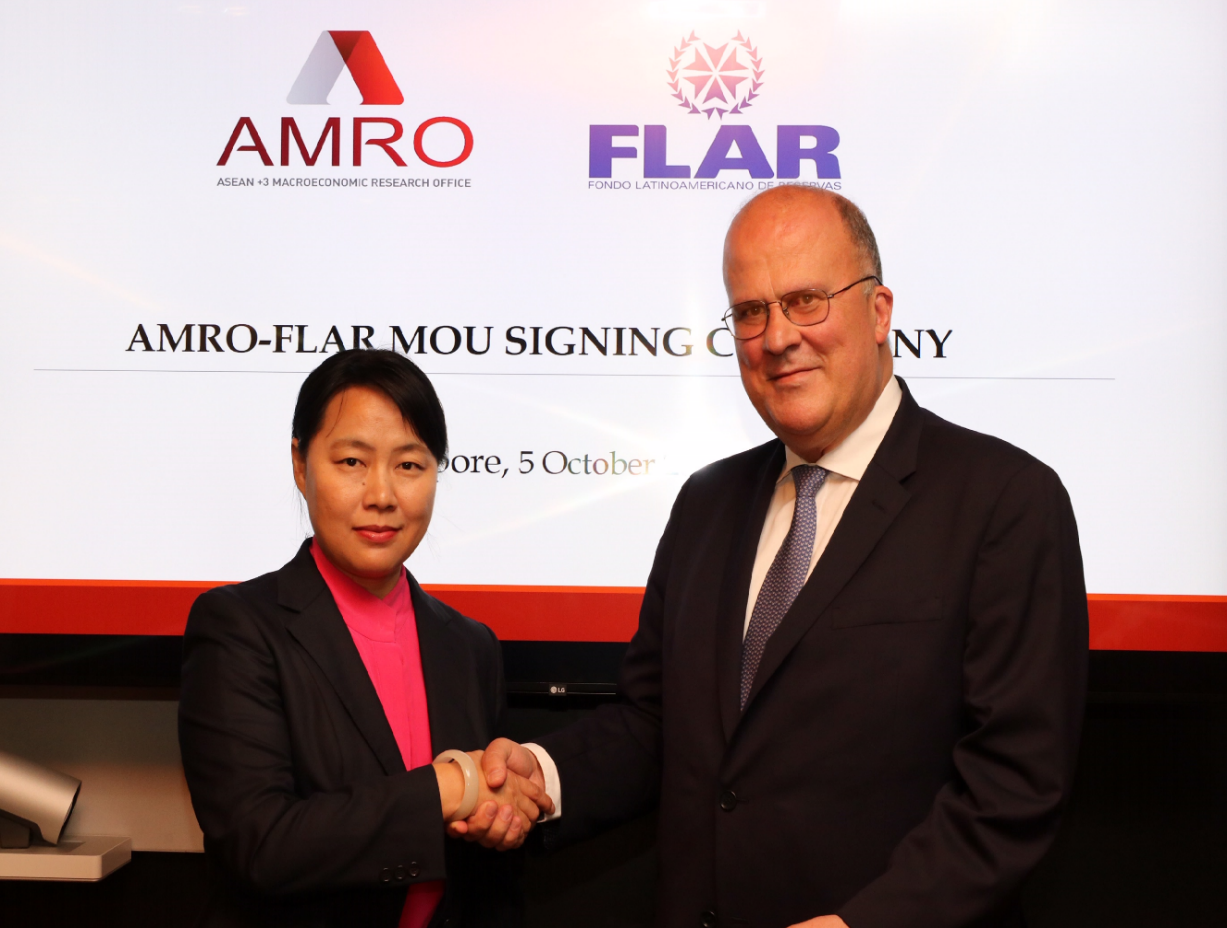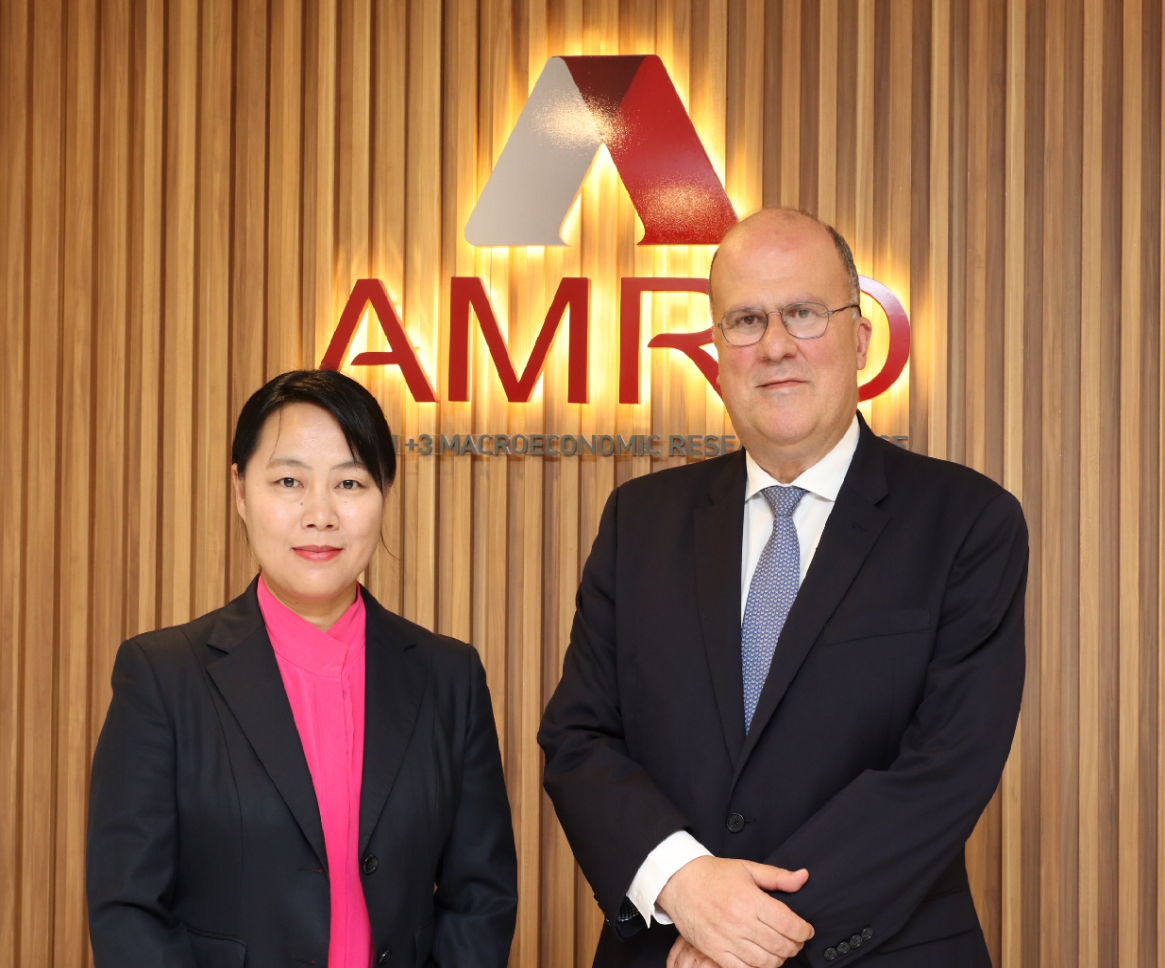
AMRO Director, Dr Junhong Chang (left) and FLAR Executive President, Dr José Darío Uribe at the MoU Signing Ceremony
SINGAPORE, October 5, 2018 – The ASEAN+3 Macroeconomic Research Office (AMRO) and the Latin American Reserve Fund (FLAR) today signed a Memorandum of Understanding (MoU). The MoU provides a general framework to strengthen collaboration on matters of common interest between the two regional organizations.
In particular, the MoU covers the organisation of joint activities, including the dialogue among Regional Financing Arrangements (RFAs), and between RFAs and the different layers of the Global Financial Safety Net (GFSN), including the International Monetary Fund (IMF). Examples include the annual High-Level RFA Dialogue, which will take place for the third time on October 10th, 2018 in Bali, Indonesia, and the Joint RFA Research Seminar, which has been held twice since its inception in 2017. The MoU also covers joint research by AMRO and FLAR, technical cooperation, capacity building and staff exchanges.
“In an increasingly interconnected world, strengthening ties among regional financial arrangements around the world is crucial to safeguard global financial stability,” said AMRO Director Dr Junhong Chang. “AMRO and FLAR have common interests in seeking to contribute to the maintenance of macroeconomic stability of their member economies. We can learn from each other in building strong capacity, providing solid technical expertise, and adopting best practices in crisis prevention and resolution.”
“The MoU signed today between AMRO and FLAR marks an important step in promoting regional cooperation in the field of financial stability and crisis prevention. There are strong and growing links between the ASEAN+3 and Latin American economies. Therefore, there are many opportunities for cooperation between both RFAs,” said FLAR Executive President José Darío Uribe.

AMRO Director, Dr Junhong Chang (left) and FLAR Executive President, Dr José Darío Uribe
FLAR is a regional, multilateral organisation established in 1978 with the objective to provide support to its member countries’ balance of payments by granting credits or guaranteeing third-party loans and improving the investment conditions of international reserves. Its member countries are Bolivia, Colombia, Costa Rica, Ecuador, Paraguay, Peru, Uruguay, and Venezuela.
AMRO is an international organization comprising 10 members of the Association of Southeast Asian Nations (Brunei Darussalam, Cambodia, Indonesia, Lao PDR, Malaysia, Myanmar, Philippines, Singapore, Thailand, and Vietnam) and China; Hong Kong, China; Japan; and Korea. Its objective is to contribute to macroeconomic and financial stability of the region through conducting macroeconomic surveillance and supporting the implementation of the Chiang Mai Initiative Multilateralisation (CMIM), a multilateral currency swap arrangement among ASEAN+3 members.
